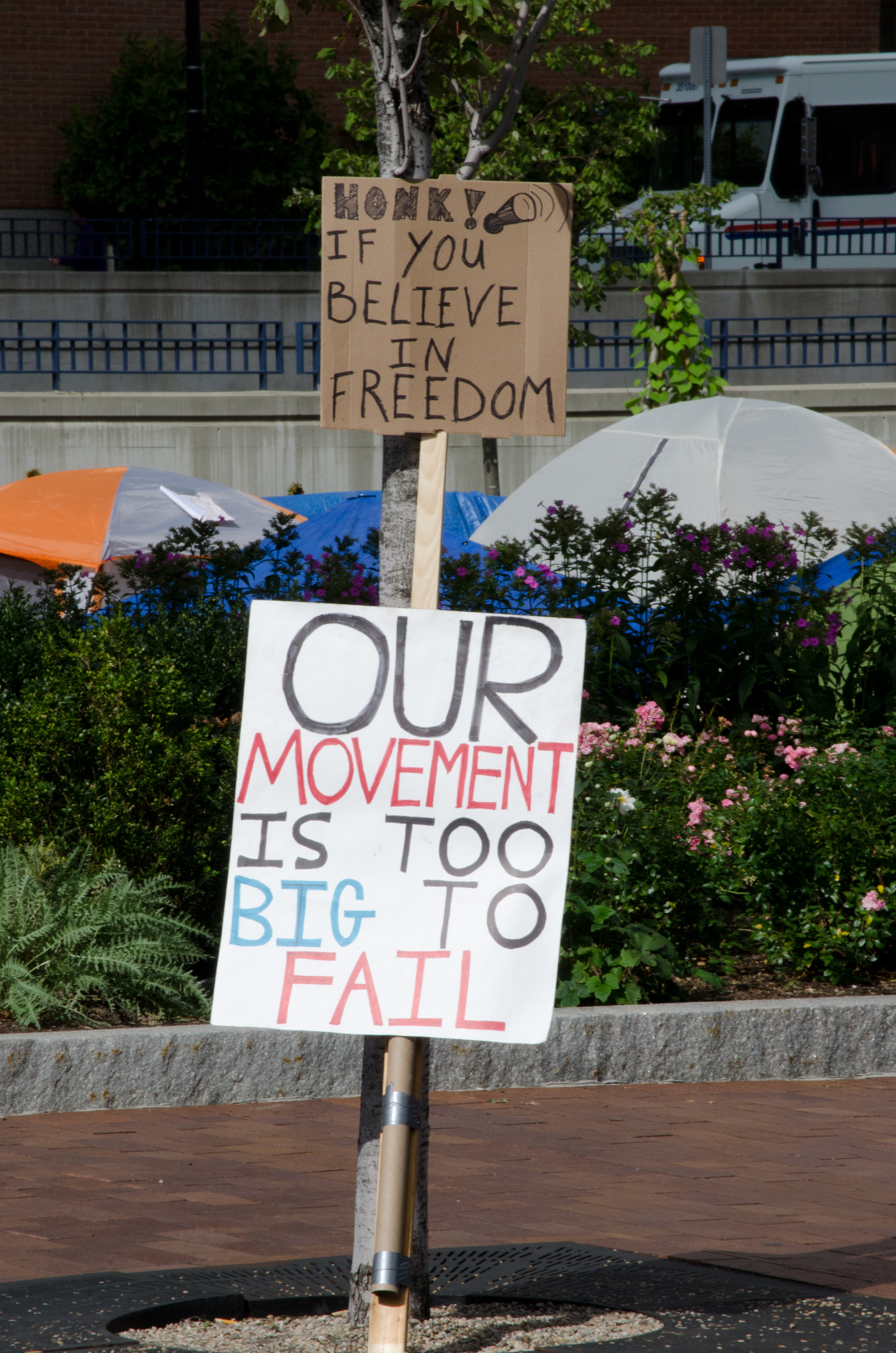[Note from Kathie Malley-Morrison: This is Part 2 of our guest post from John Hess of UMass/Boston, reporting on Occupy Boston.]

When you hear chants like “How do you solve the deficit? End the wars and tax the rich!” and “They got bailed out, we got sold out,” you are in the company of people with a very good understanding of the current situation–neatly summed up in the chant “We are the 99%!”
Where all this will lead, we don’t yet know. But there seems to be a growing wave of discontent that first showed itself in Wisconsin. I read that demonstrations of support for Occupy Wall Street have occurred in over 100 cities and that mini-occupations like Occupy Boston are spreading, even to Europe.
What drives this movement is clear to me: it’s common sense based on the obvious fact that most of us are not being treated fairly by this economy, this social system. We work when we can get a job, but are not properly rewarded.
Reports show that real incomes for most Americans have dropped significantly since the recession officially ended. Education (coupled with hard work) has been the traditional path to a better life for most Americans, yet educational costs are now staggering.
My university, UMass Boston, has seen state funding drop from some 77% of the budget in 1985 to around 26% this year. The shortfall has been made up by heavily increased student fees, which are now over $9,000 of the approximately $12,000 it costs in-state students to attend our commuter school. Why? In large part because we will not tax the rich or the corporations. (I have been told that the head of GE pays less income tax than his personal assistant. Even if he doesn’t, I’ll bet he doesn’t pay much.)
There is much cause for optimism. A generation, no, a nation, seems finally to be waking up, even though it is but early morning and we are still rubbing the sleep from our eyes. Maybe another slap of cold water will bring us fully awake to seize the new day that is dawning.
John Hess, Senior Lecturer in English and American Studies, University of Massachusetts, Boston


